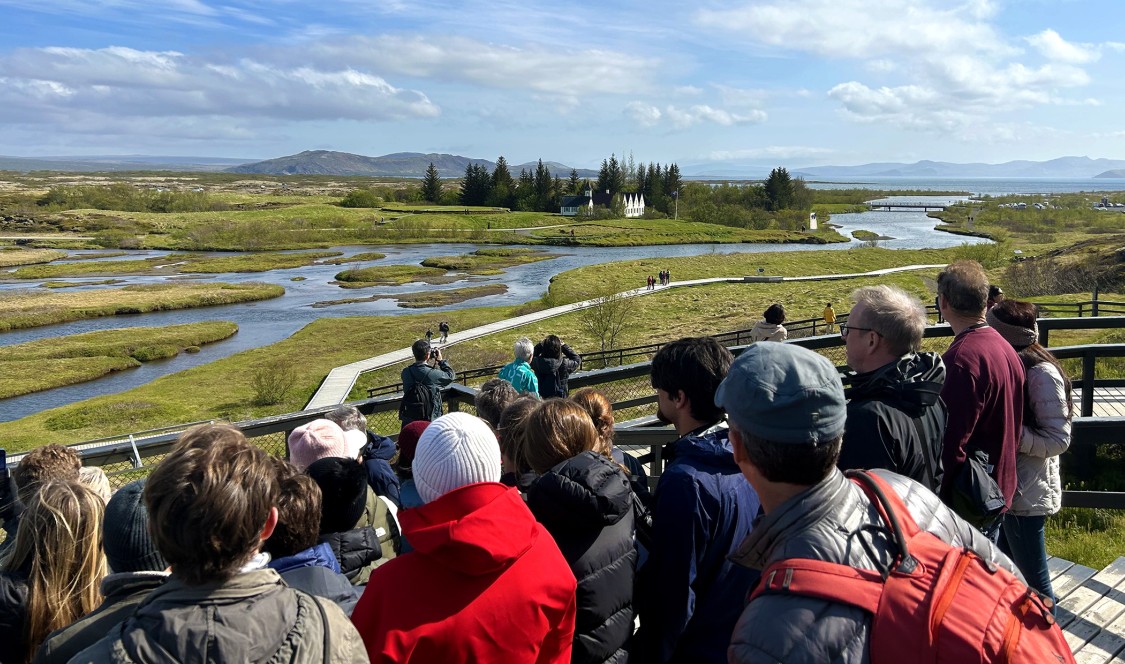
More than 50 CMCers—including students, alumni, families, and two faculty members —embarked together on a journey of a lifetime, joining CMC's second annual Worldmeet, held more than 4,300 miles away in Iceland.
As they toured the “land of fire and ice,” the group learned about climate change with a focus on sustainability and renewable energy, as Iceland generates more than 99 percent of its electricity from renewable sources such as geothermal, hydro, and wind.
CMC Professors Ran Libeskind-Hadas (founding chair of the Kravis Department of Integrated Sciences), and Branwen Williams (George Roberts Professor of Environmental Biology and, as of July 1, director of the Roberts Environmental Center), deepened the experience, offering their expertise and providing scientific context.
Williams led a climate change discussion “focused on the importance of our oceans in moderating global climate through the movement of energy from the tropics to the poles. Also, how this movement of energy is, in turn, impacted by climate change,” she said. While Libeskind-Hadas hosted a discussion, “The Global Climate Crisis and the CMC Response," highlighting the priorities of CMC’s newest department.

“It was a treat to spend time exploring another country while having rich conversations with our broader CMC community,” Williams said.
The trek to Iceland also offered Libeskind-Hadas and Williams an opportunity to inform and expand their own research and teaching, as before the Worldmeet program began, they met with two scientists at Iceland’s Marine and Freshwater Research Institute. “There, we learned that ocean temperatures were not warming very much because the country is largely bathed by colder currents coming down from the Arctic. In contrast, because of the cold water, the seawater chemistry is changing rapidly and is posing a threat to the fisheries that support their economy,” she said.
The official Worldmeet program included a puffin-watching excursion, an introduction to geothermal greenhouse farming, visits to both hydro and geothermal power plants as well as Iceland’s famous lagoons, and a discussion led by Gisli Olafsson, a member of Iceland's Parliament, on the country’s approach to climate change and natural resources.
Williams said she was “reminded that the impacts of climate change are felt locally and that the successful mitigation and adaptation strategies to climate change must occur locally.”

Scott Torrey ’91 P’23 P’26, president of the CMC Alumni Association, who took part in the program, said the learning tour “challenged us to confront the complexity of renewable energy and the impact on our climate. We leave with inspiration of what can be done from a wonderful country leading the way.”
Cary Davidson ’75 shared that the tour inspired a better understanding of “the unintended consequences of geothermal energy as we combined that with the ramifications of global climate change. Some clean energy initiatives result in a much larger carbon footprint. That’s the tension. The solution isn’t obvious.”
Learn the details of the second annual Worldmeet Iceland itinerary and stay tuned for more information about Worldmeet 2024: https://online.cmc.edu/worldmeet

